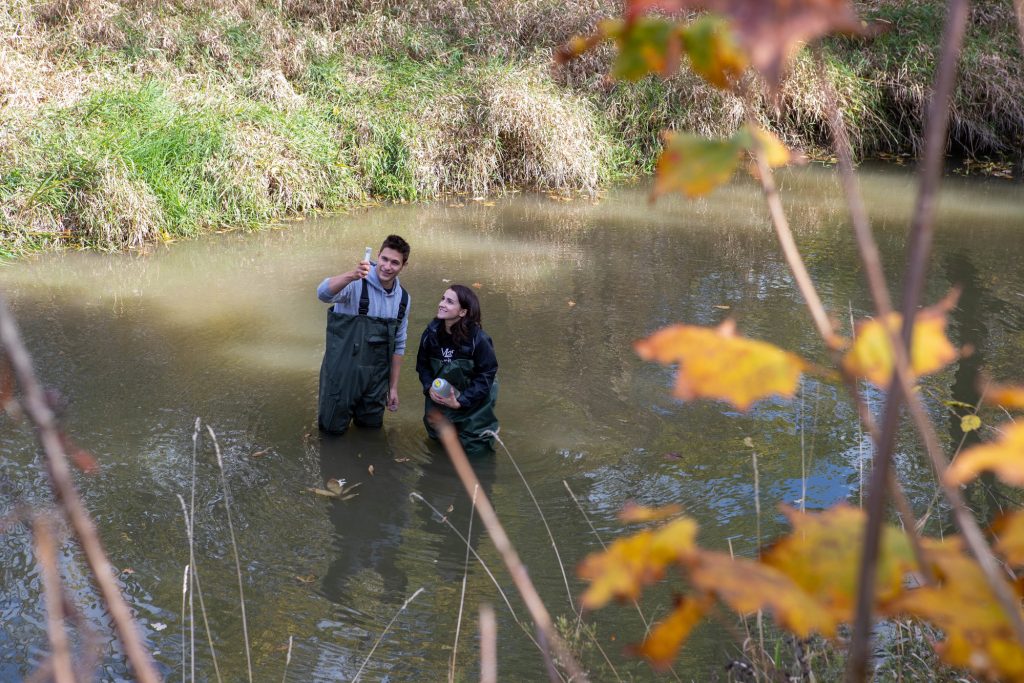McMaster Water Research
Many McMaster faculty members conduct research related to water conservation and the environment. Find the latest stories on water research here: https://brighterworld.mcmaster.ca/channels/water-research/
Here are some of the researchers doing work in this area:
Sarah Dickson is addressing water security around the world. Dickson describes herself as a social hydrologist that looks at the sustainable management of water systems through social and physical lenses. One of her research studies involved conserving water by introducing rainwater harvesting in a rural Maasai community in Kenya, where water is scarce.
Gail Krantzberg, a professor in McMaster’s W Booth School of Engineering Practice and Technology, is an expert in Great Lakes science, policy, and governance. She has worked with local and provincial governments for decades on the issues of water security and policy. She collaborates on Canadian-American efforts to restore Areas of Concern in the Great Lakes (including Hamilton Harbour), which have invested US$22.8 billion over the last 35 years, according to an article in the Journal of Great Lakes Research. The money has been well-spent, the article finds, with every dollar toward cleanup catalyzing more than $3 worth of community revitalization.
Dawn Martin-Hill, is one of five McMaster researchers to be awarded a grant from Global Water Futures in October 2020, for her research project, Co-Creation of Indigenous Water Quality Tools, studying pressing issues of clean water and water security in Indigenous communities.
Yiping Guo, a professor of Civil Engineering, is investigating the planning, design, and operation of urban drainage systems, stormwater management, and water distribution networks. His team works to ensure municipalities can prepare and plan for the impacts of climate change and remediation on urban stormwater management systems.
Sonia Hassini, an assistant professor of Civil Engineering, researches the effects of climate and land-use changes on water security. She investigates the associated effects on urban stormwater quantity and quality. The main goal of her work is to design optimal, smart, and sustainable solutions to control runoff within small urban catchments.
David Latulippe, an associate professor of Chemical Engineering, is developing new separation processes for a variety of tough-to-treat applications which include tailings (the suspension of clay particles) from mining operations, biosolids from municipal wastewater treatments, and vegetable wash water from agriculture processing to ensure greater amounts of water are safe for reuse.
Zoe Li, assistant professor of Civil Engineering, is developing simulation models to offer predictions on water quantity and quality. Her work includes hydrological modeling and probabilistic forecasting, environmental modeling and risk analysis, climate change impact assessment, and environmental systems optimization.
Charles de Lannoy, assistant professor of Chemical Engineering, works with Indigenous communities to improve water quality. His research is broadly focused on the environmental applications and implications of nanomaterials.

